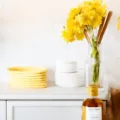Cleaning is a vital part of maintaining a healthy and comfortable living environment. However, various myths about cleaning have persisted over time, leading to ineffective or even harmful practices. In this article, we’ll debunk some of the most common cleaning myths, according to experts, to help you clean more efficiently and safely.
Myth 1: The More Cleaning Product, the Better
Many people believe that using more cleaning product will result in a cleaner surface. However, experts say that using too much product can leave residue that attracts more dirt and is harder to rinse off. It’s essential to follow the instructions on the label and use the recommended amount for the best results.
Myth 2: Bleach is the Best Cleaner
While bleach is a powerful disinfectant, it’s not the best cleaner for all surfaces. Bleach can damage certain materials and doesn’t remove dirt and grime effectively. Experts suggest using bleach for disinfecting purposes but relying on other cleaners for removing dirt and stains.
Myth 3: Vinegar Cleans Everything
Vinegar is often touted as a natural and versatile cleaner, but it’s not suitable for all surfaces. For example, vinegar can damage natural stone surfaces like granite and marble. Experts recommend using vinegar sparingly and only on surfaces where it’s known to be safe.
Myth 4: Newspapers are Best for Cleaning Windows
Using newspapers to clean windows is a traditional method, but it’s not always the best choice. Modern newspapers can leave ink smudges on your windows. Experts recommend using microfiber cloths or squeegees for streak-free window cleaning.
Myth 5: All Germs are Bad
While it’s important to maintain cleanliness, not all germs are harmful. In fact, some exposure to germs can help build a stronger immune system. Over-sanitizing can lead to resistant bacteria. Experts advise cleaning regularly but not obsessively.
Myth 6: Feather Dusters are Effective
Feather dusters may look elegant, but they often just spread dust around rather than removing it. Experts suggest using a damp cloth or a microfiber duster to effectively trap and remove dust from surfaces.
FAQ
1. Can I use vinegar to clean my hardwood floors?
Experts advise against using vinegar on hardwood floors as it can damage the finish. Instead, use a cleaner specifically designed for hardwood flooring.
2. Is it safe to use bleach on colored fabrics?
No, bleach can cause colors to fade and fabrics to weaken. Use color-safe bleach or oxygen bleach for colored fabrics.
3. How often should I clean my home?
Regular cleaning is important, but the frequency depends on various factors such as the number of occupants and pets. Generally, high-traffic areas should be cleaned weekly, while other areas can be cleaned as needed.
4. Are natural cleaning products better than chemical ones?
Natural cleaning products can be effective and are often safer for the environment and your health. However, chemical cleaners may be necessary for tougher jobs. It’s best to use a combination of both, depending on the cleaning task.
5. Can I use dish soap to clean everything?
Dish soap is great for cleaning dishes but may not be suitable for all surfaces. It can leave a film on some materials and isn’t effective against certain types of dirt and grime. Use the appropriate cleaner for each specific task.









